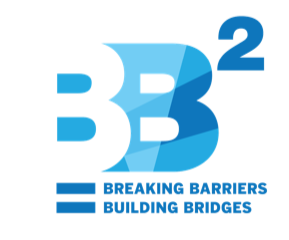Just History
Discover the histories of the Black, Indigenous, and People of Color who lived and worked in our local towns through the mid-20th century, and those who were connected to them.
+++
Foreword
As a center for preserving and sharing the rich history of our region, the Brick Store Museum recognizes the critical responsibility that public history professionals and researchers have to uphold the highest standards of historical interpretation. In today’s world, where historical narratives shape our collective memory and understanding, it is vital that interpretations are grounded in accuracy, inclusivity, and nuance, free from the influence of personal biases.
In line with this commitment, our work follows guidelines outlined in The Brick Store Museum’s Principles of History Interpretation. This ensures that all members of the community can engage with history in an honest, meaningful, and informed way.
The Museum invites visitors and researchers alike to engage with this work, providing opportunities for learning and dialogue that respect historical accuracy and promote critical thinking. As part of this ongoing process, the Museum remains dedicated to listening to diverse voices and perspectives while fostering an environment that invites all to examine history with care and curiosity.
We are proud to offer the Just History Database as a public resource for research and learning.
+++
About the Just History Project:
The Just History project began in 2020 with a small group of interested citizens, with the goal of documenting how Kennebunk and the surrounding towns were never all-white spaces. The Wabanaki and other surrounding tribal nations lived here for thousands of years before European settlers overtook these spaces without permission or compensation. During the colonial era, enslavement existed here in Southern Maine (and throughout New England). While Northern slavery was not on the scale of that of the American South, it was not uncommon here. After the Revolution, slavery continued until the late 1700s in Massachusetts, which included Maine until 1820. Emancipation was gradual, with many “freed” people continuing as “servants.” Note that many had also been referred to as “servants” when they were enslaved.
The goal in creating this database is to highlight people that lived here who were historically marginalized. They include Black, Indigenous, and other People of Color, many of whom we will never know. Hours of volunteer research has uncovered several hundred people whose stories are still fragmentary and uncertain. This Database is a beginning for understanding the diverse history of our region. The Database also includes those who had documented connections with those who were historically marginalized, and what is known about their relationships. In the early years, many of them were enslaved or enslavers. Later, they may have been an employee or employer, a tenant or landlord.
This Database will share what we know of their personal stories and provide access to primary source documentation whenever possible. We will be adding to the Database as new information is discovered. This resource includes the database, a search page, and related research articles.
The Just History Database
The simplest way to access the Just History database records is to browse the list of entries. Simply click on “Search the database” button below, and then start scrolling. The entries are listed alphabetically by first name.
Note that there are options to just search or browse portions of the database. To do so, choose from the Status and Categories options that are listed at the top of the Search page.
Expanding Stories & Experiences
This is a collection of articles that highlight various aspects of the lives of the people who are included in this Database along with related topics. We expect to be continually adding to this collection. Please click the button below to start exploring.
This section will be updated with new stories and research notes thanks to lead researcher Bill Grabin and other guest writers.
Questions? Contact us at justhistory@brickstoremuseum.org
This project is supported by:


If you would like to support this work, please email us at info@brickstoremuseum.org for more information.
Acknowledgments
The Museum’s great thanks go to Bill Grabin, who, for four years, has invested his time in exploring and researching the history of the people in this database, whose lives have been largely overlooked. Through his hours of volunteer research, Bill has invested in local learning and public access to the past, something the Museum holds in very high regard.
In turn, Bill Grabin extends his thanks to the following individuals and organizations which have been very generous in providing their support and assistance for this project: Kennebunk Town Historian Kathy Ostrander Roberts, Kennebunkport historian Sharon Cummins, The Prince Project founder Vana Carmona, the Kennebunkport Historical Society, the Historical Society of Wells and Ogunquit, the Kennebunk Free Library, the Wells Public Library, and the Maine Historical Society.
